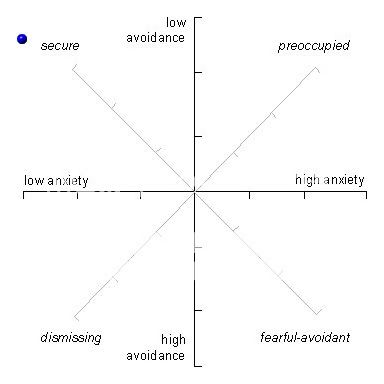According to your questionnaire responses, your attachment-related anxiety score is 3.89, on a scale ranging from 1 (low anxiety) to 7 (high anxiety). Your attachment-related avoidance score is 2.91, on a scale ranging from 1 (low avoidance) to 7 (high avoidance).
As you can see in this graph, the two dimensions of anxiety and avoidance can be combined to create interesting combinations of attachment styles. For example people who are low in both attachment-related anxiety and avoidance are generally considered secure because they don't typically worry about whether their partner's are going to reject them and they are comfortable being emotionally close to others.
Combining your anxiety and avoidance scores, you fall into the secure quadrant. Previous research on attachment styles indicates that secure people tend to have relatively enduring and satisfying relationships. They are comfortable expressing their emotions, and tend not to suffer from depression and other psychological disorders.






